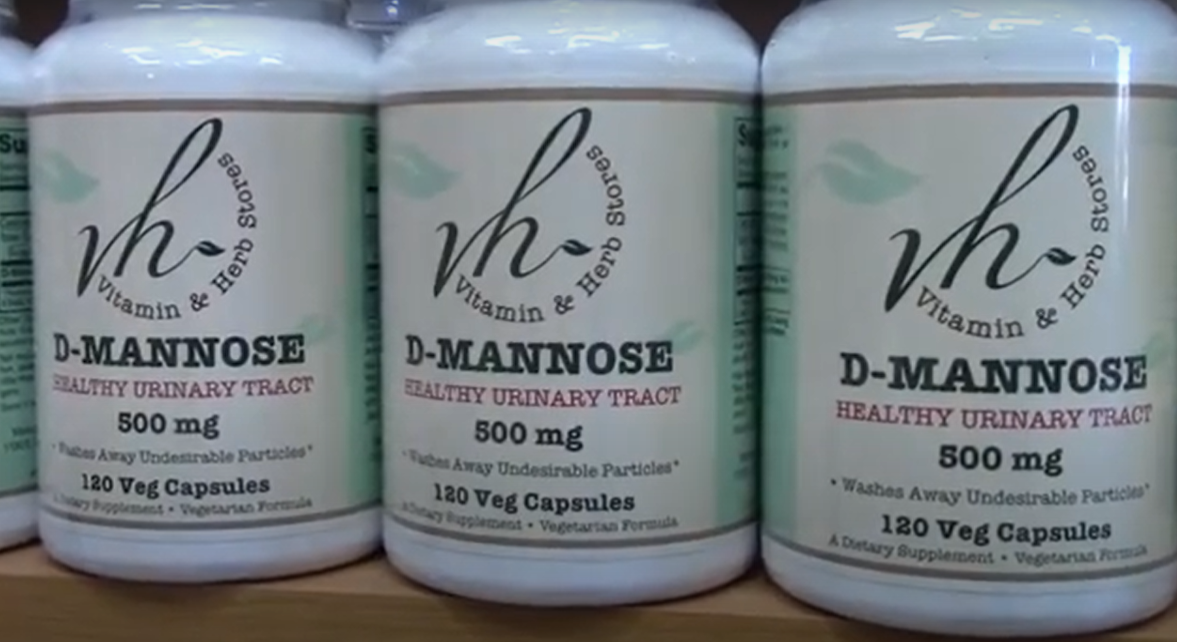It is clear that Urinary Tract Infections (UTIs) are a prevalent health issue, particularly among women. Women are 30 times more likely than men to suffer from this condition.
From my experience, UTI symptoms can vary widely, ranging from pain during urination and frequent, minimal urination, to dark-colored urine with a strong smell.
It’s not uncommon for patients to also find blood or pus in their urine, accompanied by lower back pain and abdominal discomfort.
Antibiotics are the standard treatment for UTIs, effectively eliminating the bacteria responsible for the infection. However, I must point out a significant drawback of antibiotics – their non-selective action.
Among many things, I will talk about:
- Dual strategy for UTI prevention – D-mannose prevents bacterial adherence to the urinary tract, while probiotics maintain a healthy bacterial balance.
- It works by stopping pathogenic bacteria from adhering to the urinary tract walls and flushing them out during urination.
- These beneficial bacteria compete with harmful bacteria for space and nutrients in the urinary tract, reducing the risk of infections.
- Using D-mannose and probiotics together can reduce the frequency of UTIs, especially in individuals with recurrent infections, and is less likely to cause side effects or antibiotic resistance.
Today, I want to address combining D-mannose and probiotics in battling UTIs.
Combining D-Mannose and Probiotics
The strategic combination of D-mannose and probiotics offers a comprehensive and synergistic approach to preventing urinary tract infections (UTIs).
This dual method targets the two main fronts of UTI prevention: inhibiting bacterial adherence and maintaining a balanced bacterial ecosystem.
How D-Mannose Works
D-mannose effectively prevents pathogenic bacteria from adhering to the walls of the urinary tract. This action is crucial because it stops bacteria from establishing colonies that lead to infections.
As D-mannose is excreted through urine, it binds to the bacteria, flushing them out of the urinary system during urination.
Role of Probiotics
Probiotics introduce beneficial bacteria to the urinary tract, which are essential for a healthy microbial balance. By increasing the population of good bacteria, probiotics help outcompete the harmful bacteria, reducing the risk of infections.
Benefits of Combining D-Mannose and Probiotics
The combination of preventing bacterial adherence and promoting beneficial bacteria offers a more comprehensive approach to UTI prevention.
Particularly beneficial for individuals with recurrent UTIs, this combination can help reduce the frequency of infections.
Unlike antibiotics, this combination is less likely to cause side effects or lead to antibiotic resistance.
Choosing the Right Products
When it comes to choosing the right products, there are some things you should consider.
- High-Quality Probiotic Capsules: Opt for probiotics with patented strains that are backed by scientific research for guaranteed effectiveness.
- Pure Form D-Mannose: Use D-mannose in its pure powder form for maximum absorption and effectiveness.
Probiotics and Their Role in UTI Prevention
Probiotics, the beneficial bacteria that play a crucial role in maintaining overall health, have gained significant attention for their ability to prevent urinary tract infections (UTIs).
These microorganisms, when introduced into the body through fermented foods or probiotic capsules, work in several ways to maintain urinary tract health and prevent infections. Probiotics can also play a role in conditions like leaky gut.
Mechanisms of Probiotics in UTI Prevention
Probiotics compete with harmful bacteria for space and nutrients in the urinary tract, reducing the chances of pathogen overgrowth.
Some probiotic strains help strengthen the lining of the urinary tract, making it less susceptible to infections. Probiotics can help maintain a healthy pH in the urinary tract, creating an environment less conducive to harmful bacteria.
Scientific Evidence
Numerous studies have shown that regular intake of probiotics can significantly reduce the recurrence of UTIs, especially in women who are more prone to these infections.
There are many signs that can help with recognizing the progress. Probiotics have emerged as a viable alternative to antibiotics for UTI prevention, especially for those who experience recurrent infections.
Best Sources of Probiotics for UTI Prevention
Now it is good to consider the best sources of probiotics for UTI prevention.
- Fermented Foods: Different yogurt variants, sauerkraut, and kimchi are excellent sources of natural probiotics.
- Probiotic Supplements: High-quality probiotic capsules can provide specific strains of bacteria known to be effective in UTI prevention.
Tips for Maximizing the Benefits of Probiotics
But how can you maximize the benefits of consuming probiotics?
- Regular Consumption: Consistency is key in maintaining a healthy balance of good bacteria.
- Adequate Dosage: Ensure the probiotic supplement contains an effective dose, usually measured in colony-forming units (CFUs).
- Diet and Lifestyle: A balanced diet rich in fiber and low in sugar, along with adequate hydration, can enhance the effectiveness of probiotics.
How Does D-Mannose Fit?
D-mannose, a naturally occurring sugar found in cranberries and other fruits, has gained recognition as an effective alternative for both the prevention and treatment of urinary tract infections (UTIs).
Its mechanism of action and benefits make it a standout choice, especially for those seeking natural remedies.
How D-Mannose Works Against UTIs
D-Mannose works by inhibiting the ability of E. coli and other UTI-causing bacteria to adhere to the walls of the urinary tract. This adhesion is a critical first step in the development of UTIs.
Unlike other sugars, D-mannose is not metabolized by the human body. It travels through the gastrointestinal tract relatively unchanged and is eventually excreted in the urine.
In the urinary tract, D-Mannose binds to the bacteria. This binding action prevents the bacteria from sticking to the urinary tract walls and leads to their elimination through urination.
Scientific Studies and Effectiveness
Research has shown that D-Mannose can be as effective as antibiotics for preventing recurrent UTIs but without the typical side effects associated with antibiotic use, such as antibiotic resistance or disruption of the body’s natural flora.
Particularly for individuals who experience frequent UTIs, D-Mannose provides a preventive strategy that can reduce the frequency of these infections.
Advantages of Using D-Mannose
Knowing the exact advantages of D-Mannose can make its use much simpler.
| Aspect | Details |
|---|---|
| Natural and Non-Antibiotic | As a natural sugar, D-Mannose offers a non-antibiotic approach to managing UTIs, which is particularly appealing in an era of increasing antibiotic resistance. |
| Fewer Side Effects | Unlike antibiotics, D-Mannose does not disrupt the body’s natural bacterial balance, making it a safer option for long-term use. |
| Ease of Use | D-Mannose is typically taken in powder form, dissolved in water, and consumed. This simple method of intake makes it an accessible option for most people. |
However, you should take a close look at things such as dosage.
- Recommended Dosage: The effective dosage of D-Mannose for UTI prevention varies, but a common recommendation is around 2 grams once or twice daily, taken with water.
- Safety Profile: D-Mannose is generally well-tolerated, with few reported side effects. However, as with any supplement, it’s important to consult with a healthcare professional before starting D-Mannose, especially for individuals with diabetes or those on other medications.
Natural Alternatives for UTI Treatment
In light of the drawbacks associated with antibiotics, there’s a growing interest in natural alternatives for UTI treatment and prevention. These include probiotics, cranberry juice, and D-mannose.
Probiotics, which are live cultures of good bacteria, are found in fermented foods or available as probiotic capsules.
Combining things like different yogurt variants with many other ingredients, such as pickles, can provide countless benefits in this matter.
They play a crucial role in maintaining a healthy balance of bacteria in the body and have been shown to reduce the risk of recurrent UTIs.
Cranberry juice, another popular remedy, contains compounds like D-mannose and Proanthocyanidin. These substances are believed to prevent UTIs by inhibiting bacteria from adhering to the urinary tract.
D-mannose, a simple sugar found in cranberries, is particularly effective in this regard. It works by flushing out the pathogens from the urinary tract, making it a potent option for UTI treatment.
FAQs
What is the best time of the day to take D-Mannose?
The best time to take D-Mannose is typically one hour before or two hours after meals. This timing helps ensure better absorption and effectiveness. However, for UTI prevention, it can also be effective when taken before bedtime, especially if symptoms often occur overnight.
How long should you wait to drink water after taking D-Mannose?
It’s generally recommended to wait about 30 minutes to an hour after taking D-Mannose before drinking water. This allows the D-Mannose to start working in the urinary tract without being immediately diluted.
What medications interact with D-mannose?
Currently, there are no well-documented interactions between D-Mannose and other medications. However, it’s always important to consult with a healthcare provider before starting D-Mannose, especially if you are on prescription medications, to ensure no potential interactions.
Is it OK to take D-Mannose every day?
Yes, it is generally considered safe to take D-Mannose daily, especially for the prevention of recurrent UTIs. However, it’s important to follow the recommended dosage and consult with a healthcare professional for personalized advice, particularly for long-term use.
In Conclusion
I firmly believe in the potential of combining D-mannose and probiotics as a natural alternative for both preventing and treating urinary tract infections (UTIs).
This holistic approach goes beyond merely addressing the immediate symptoms of an infection. It plays a crucial role in enhancing the overall health of the urinary tract, ensuring a more comprehensive form of treatment and prevention.
I always advise individuals to consult with healthcare professionals before embarking on any new health regimen.
With the correct guidance and a tailored approach, it is entirely feasible to effectively manage and prevent UTIs, all while bolstering the body’s natural defenses and maintaining overall urinary health.
Related Posts:
- Can You Take Probiotics While Pregnant: Enhancing…
- Can You Take Too Much Biotin and How Much is Enough?…
- Can Probiotics Cause Hormonal Imbalance: Balancing Act
- How Long Does it Take to See a Psychiatrist?…
- How Long Does It Take for Magnesium Citrate to Work?…
- When is the Best Time to Take Collagen? According to…
















